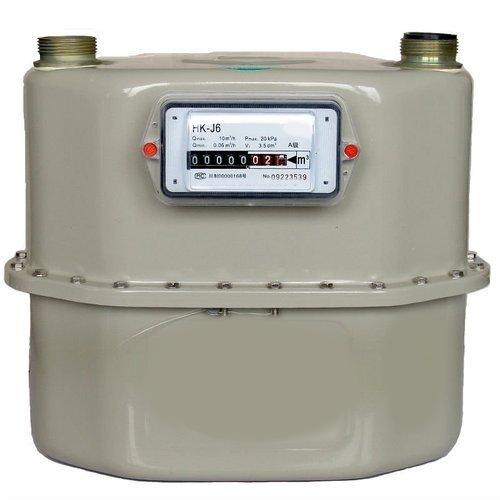The Backbone of Business Energy Management: Commercial Gas Meters
Commercial gas meters are indispensable tools that empower businesses to monitor and control their gas consumption. These meters are the linchpin of effective energy management strategies for various industries, including hospitality, manufacturing, healthcare, and more. This article explores the significance of commercial gas meters, their components, applications, and the advantages they offer in helping businesses manage their energy usage efficiently.
Understanding Commercial Gas Meters
Commercial gas meters are specialized devices designed for measuring the volume of natural gas consumed by businesses and large-scale enterprises. Unlike residential gas meters, which are typically smaller and serve individual households, commercial gas meters are engineered to handle higher flow rates and more extensive gas consumption. They are fundamental to both utility providers and business owners, as they facilitate accurate billing, improve energy efficiency, and enable informed decision-making regarding gas consumption.
Components of a Commercial Gas Meter
- Gas Meter: The gas meter itself is the primary component, responsible for measuring the volume of gas passing through the system. It typically consists of a mechanical dial or digital readout that displays gas usage in cubic feet or cubic meters.
- Inlet/Outlet Connection: Commercial gas meters feature larger inlet and outlet connections to accommodate the higher flow rates required by businesses.
- Regulator: A gas regulator is often integrated into commercial gas meters to reduce the high-pressure gas from the supply line to a level suitable for metering. This ensures safe and accurate measurement.
- Flow Sensing Mechanism: Inside the gas meter, a flow sensing mechanism, such as a turbine or diaphragm, is used to measure the volume of gas passing through the meter.
- Data Output: Many modern commercial gas meters are equipped with data output capabilities, allowing for remote reading and monitoring. This data can be transmitted to utility providers for billing or accessed by businesses for analysis.
Applications of Commercial Gas Meters
Commercial gas meters find applications in a wide range of industries and settings:
- Manufacturing: Manufacturers rely on gas meters to monitor gas consumption in industrial processes such as heating, cooling, and chemical reactions.
- Hospitality: Hotels, restaurants, and resorts use gas meters for heating, cooking, and hot water systems, allowing them to manage operational costs efficiently.
- Healthcare: Hospitals and healthcare facilities utilize gas meters for heating, sterilization, and various medical processes, ensuring a constant and reliable gas supply.
- Education: Schools, colleges, and universities employ commercial gas meters for heating, laboratory equipment, and other gas-dependent systems to control energy expenses.
- Commercial Buildings: Office complexes, shopping centers, and commercial properties use gas meters to monitor and optimize heating and cooling systems.
- Agriculture: Farms and agricultural facilities employ gas meters for irrigation, heating, and various agricultural processes.
- Food Processing: Food processing plants rely on gas meters to regulate gas consumption in cooking, baking, and other food production activities.
Advantages of Commercial Gas Meters
- Accurate Billing: Commercial gas meters ensure accurate billing based on actual gas consumption, eliminating estimation errors and disputes between utility providers and businesses.
- Energy Efficiency: By monitoring gas usage in real-time, businesses can identify opportunities to optimize energy consumption and reduce waste, ultimately leading to energy cost savings.
- Carbon Footprint Reduction: Effective gas management, facilitated by commercial gas meters, enables businesses to reduce their carbon footprint by minimizing unnecessary gas consumption.
- Data Analysis: Data output capabilities allow businesses to analyze gas usage patterns, identify anomalies, and make informed decisions about energy efficiency improvements.
- Regulatory Compliance: Compliance with environmental regulations and industry standards is easier to achieve when gas usage is accurately monitored and controlled.
- Maintenance Alerts: Some commercial gas meters are equipped with diagnostic features that provide alerts for maintenance requirements, ensuring the meter’s continued accuracy.
- Cost Control: By having insight into their gas consumption, businesses can implement strategies to control energy costs, which can be a significant operational expense.
- Remote Monitoring: Remote reading capabilities enable utility providers to gather data without physical inspections, reducing operational costs for meter reading.
Challenges and Considerations
While commercial gas meters offer numerous benefits, they also come with certain challenges and considerations:
- Initial Costs: The installation of commercial gas meters can involve significant upfront costs, including purchasing the meter itself and installation expenses.
- Maintenance: Regular maintenance is essential to ensure the accuracy and reliability of commercial gas meters, adding to the total cost of ownership.
- Data Security: As more meters become connected and data is transmitted digitally, data security becomes a concern. Protecting sensitive energy consumption data is paramount.
- Meter Location: Selecting the right location for meter installation is critical to ensure accurate measurements and ease of maintenance access.
- Regulatory Compliance: Businesses must ensure they adhere to local regulations and standards governing the installation and use of commercial gas meters.
Conclusion
Commercial gas meters are the unsung heroes of energy management in the business world. They provide accurate measurements, enable efficient energy usage, and empower businesses to make data-driven decisions regarding their gas consumption. As technology continues to advance, these meters are becoming even more integral to industries that rely on natural gas for their operations. In a world where sustainability and cost control are paramount, commercial gas meters are indispensable tools for businesses striving to achieve both economic and environmental objectives.







